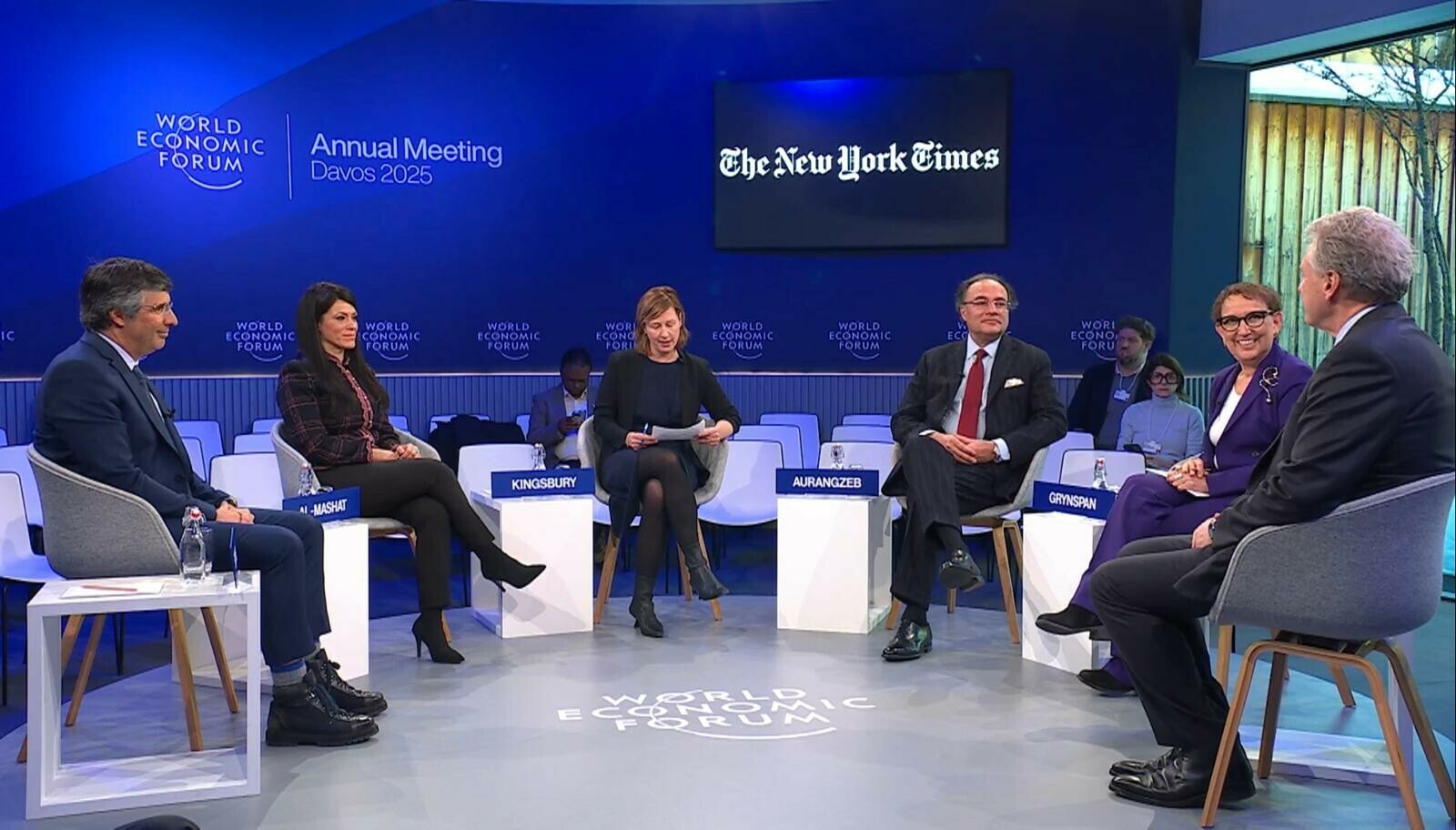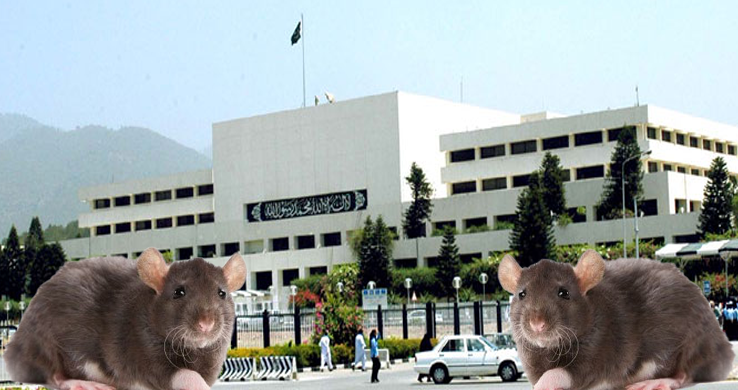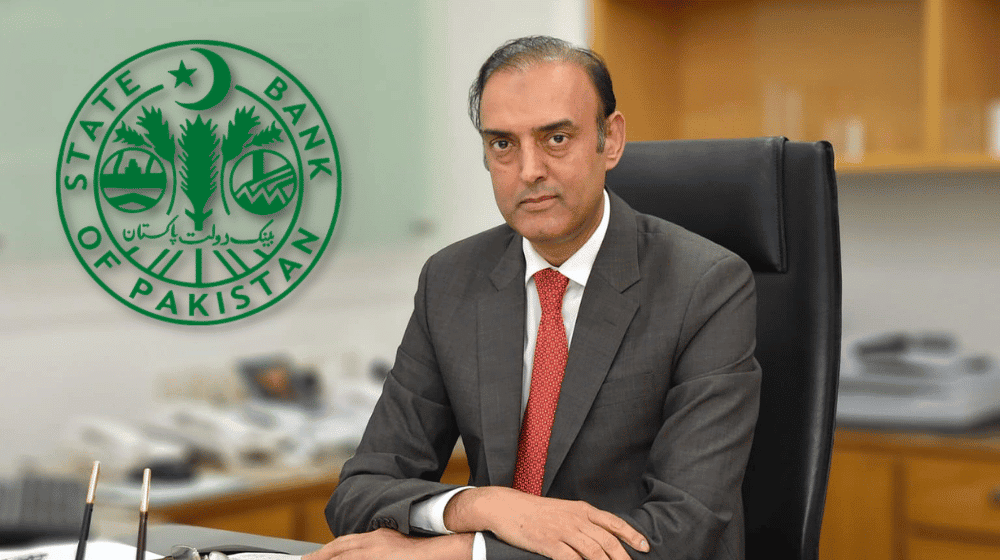PTBP Web Desk
Finance Minister Muhammad Aurangzeb has reaffirmed Pakistan’s strong commitment to macroeconomic stability and reform during a constructive meeting with Nigel Clarke, Deputy Managing Director of the International Monetary Fund (IMF). The meeting took place on the sidelines of the IMF-World Bank Annual Meetings, where both sides discussed Pakistan’s ongoing economic program and future cooperation.
According to a statement by the Finance Division, the meeting underscored Pakistan’s dedication to advancing structural reforms, strengthening fiscal discipline, and maintaining macroeconomic stability. Minister Aurangzeb expressed gratitude for the IMF’s continued support and acknowledgment of Pakistan’s progress under its current programs.
He particularly thanked the IMF for endorsing Pakistan’s performance under the Extended Fund Facility (EFF) and the Resilience and Sustainability Facility (RSF), expressing optimism for an early staff-level agreement (SLA).
Following the discussions, the IMF officially announced a staff-level agreement with Pakistan on the second review of the EFF and the first review of the RSF.
The agreement, pending approval from the IMF Executive Board, will grant Pakistan access to about $1.0 billion (SDR 760 million) under the EFF and $200 million (SDR 154 million) under the RSF. This brings total disbursements under both facilities to nearly $3.3 billion.
In its statement, the IMF acknowledged Pakistan’s progress in implementing economic reforms, maintaining fiscal discipline, and pursuing sustainable growth.
During the IMF-World Bank meetings, Finance Minister Aurangzeb continued to engage in a series of high-level discussions with key international stakeholders, including representatives from the United States, World Bank, Saudi Fund for Development (SFD), and global investors.
In his meeting with Emory Cox, Special Assistant to the US President for International Economic Relations; Ricky Gill, Senior Director for South & Central Asian Affairs; and Pierre Yared, Acting Chair of the White House Council of Economic Advisors, Aurangzeb emphasized the importance of transforming Pakistan-US engagement into a broader economic partnership.
He noted that both nations could benefit from joint initiatives in energy, mineral exploration, agriculture, technology, and digital assets, building upon earlier meetings with US Commerce Secretary Howard Lutnick and USTR Ambassador Sarah Greer.
The Finance Minister also met with H.E. Sultan Abdulrahman Al-Marshad, CEO of the Saudi Fund for Development (SFD). Both sides reaffirmed the strategic partnership between Pakistan and Saudi Arabia, particularly in infrastructure and development.
Aurangzeb expressed gratitude for the ongoing Saudi Oil Facility and sought extended collaboration on major projects such as the Hyderabad–Sukkur Motorway (M-6), Main Line-1 (ML-I) railway modernization, skills development, and IT infrastructure.
He also welcomed SFD’s assurance of continued support for Pakistan’s digitalization agenda, reflecting Riyadh’s growing interest in Pakistan’s technology sector.
Addressing the G-24 Ministers & Governors’ Meeting, Aurangzeb highlighted the macroeconomic stability achieved through critical taxation reforms, energy sector improvements, and restructuring of state-owned enterprises (SOEs).
He stressed the importance of regional trade corridors and global cooperation on climate resilience, noting Pakistan’s vulnerability to climate-related disasters such as floods. The Finance Minister also appreciated the IMF’s condolences regarding recent flood-related losses and reiterated the need for long-term flood mitigation programs.
In a significant meeting with Ousmane Dione, Regional Vice President for MENAAP at the World Bank, Aurangzeb reaffirmed the government’s commitment to implementing the Country Partnership Framework (CPF).
He shared that Pakistan has developed a comprehensive implementation plan in coordination with provincial governments, aiming to maximize access to IDA resources and support climate resilience. He urged the World Bank to assist Pakistan in designing and financing a long-term flood mitigation initiative under the CPF framework.
Meanwhile, at a roundtable hosted by Jefferies International, Aurangzeb engaged leading institutional investors, highlighting Pakistan’s economic outlook, fiscal and monetary reforms, and external sector developments. He reassured investors of the government’s commitment to maintaining a stable policy environment and implementing transparent reforms in taxation, energy, and privatization.
In another key engagement, the Finance Minister met with Ahmed Abdelaal, Group CEO of Mashreq Bank, and its senior leadership. He praised the long-standing partnership between Pakistan and Mashreq Bank, celebrating the bank’s formal entry into Pakistan’s market.
Aurangzeb noted that Mashreq’s expansion would contribute to innovation and growth in Pakistan’s financial ecosystem, supporting digital banking and fintech development. He reaffirmed the government’s commitment to creating a supportive policy framework for the long-term success of Pakistan’s financial services industry.




